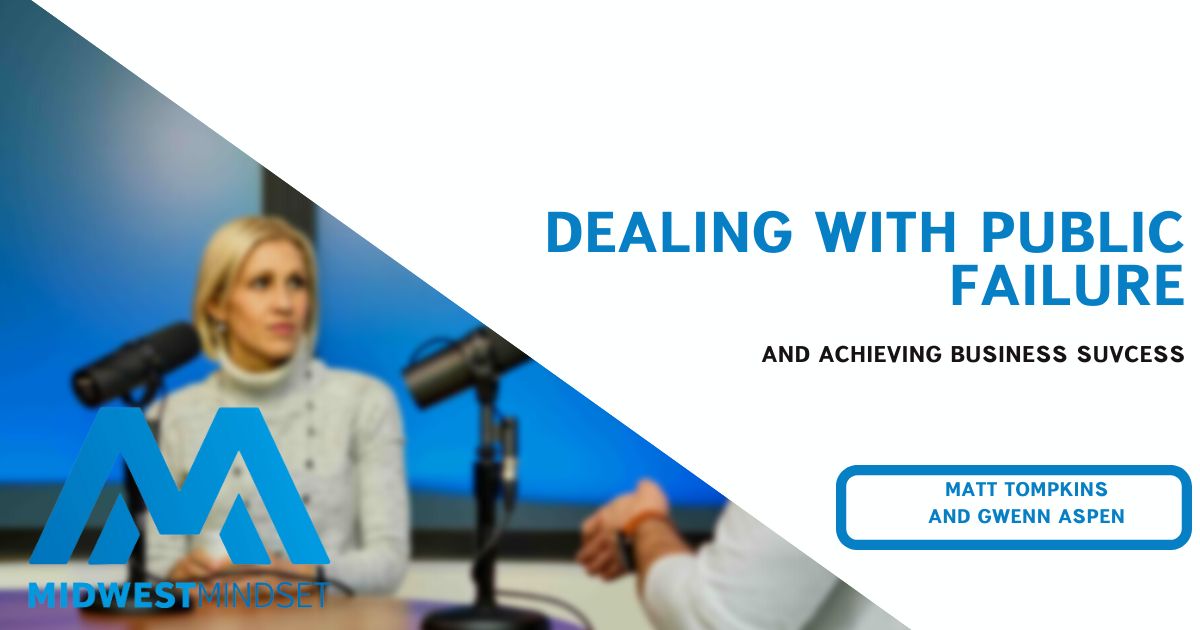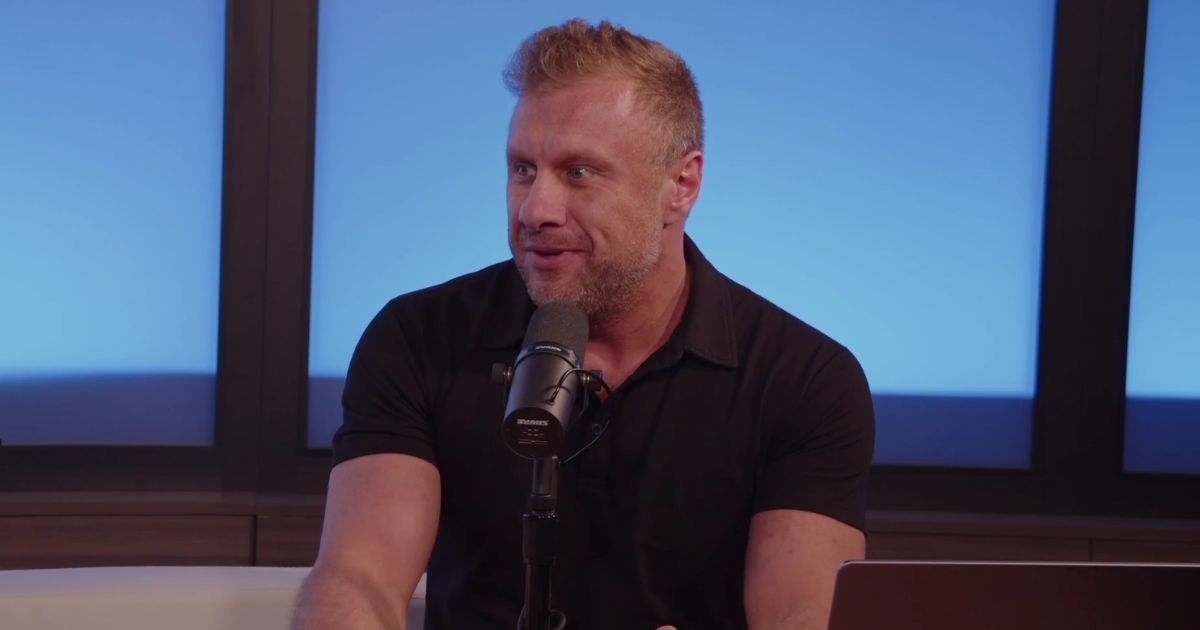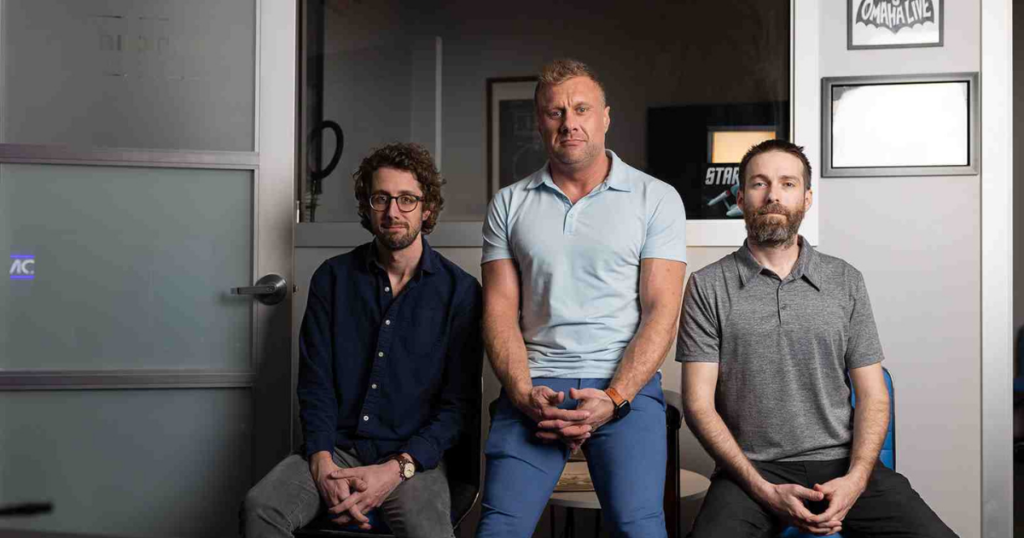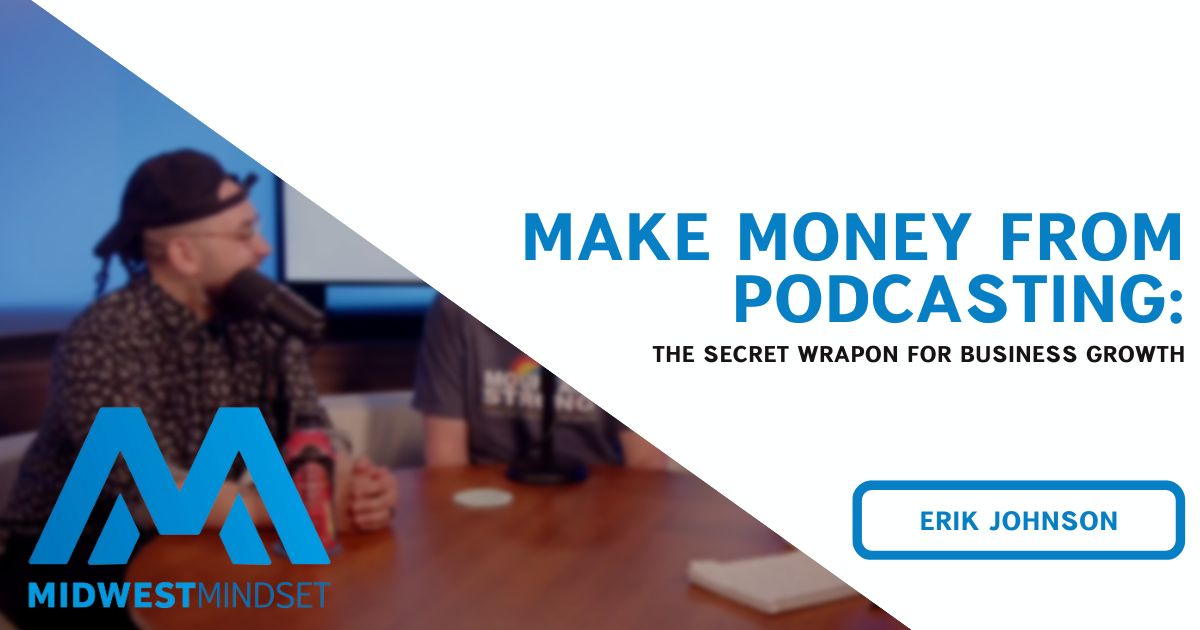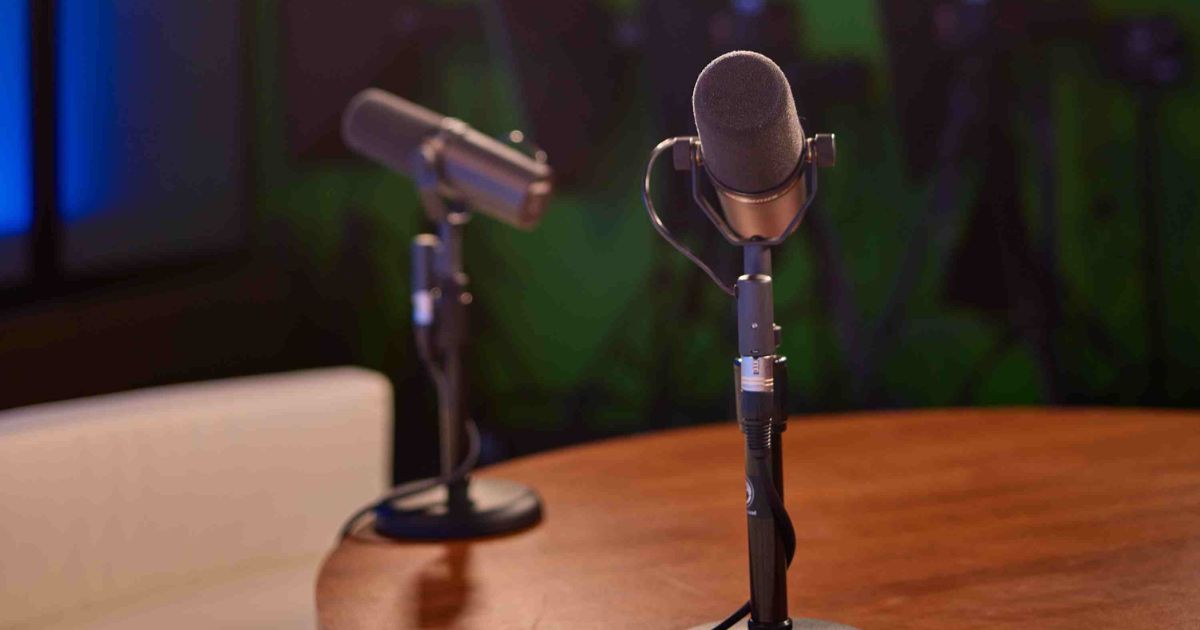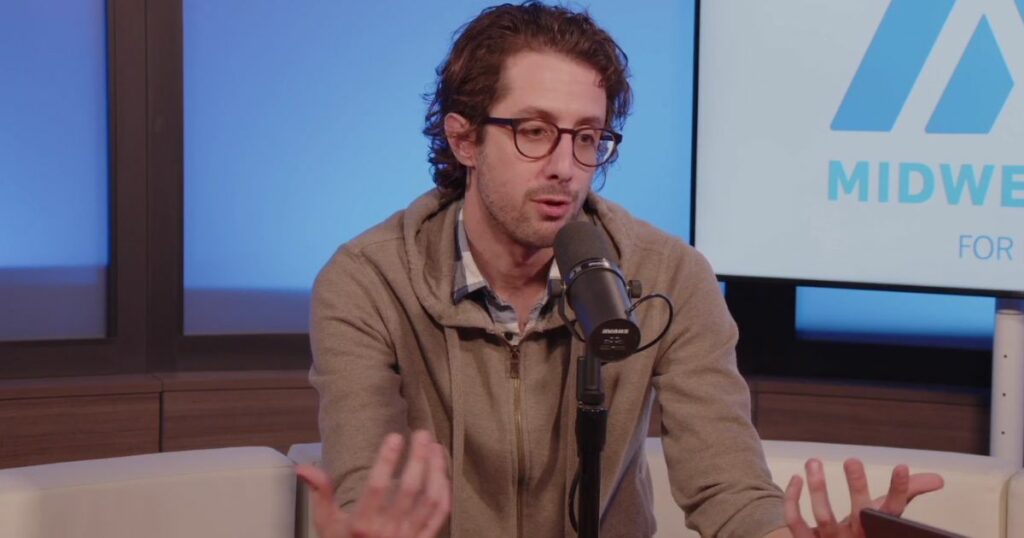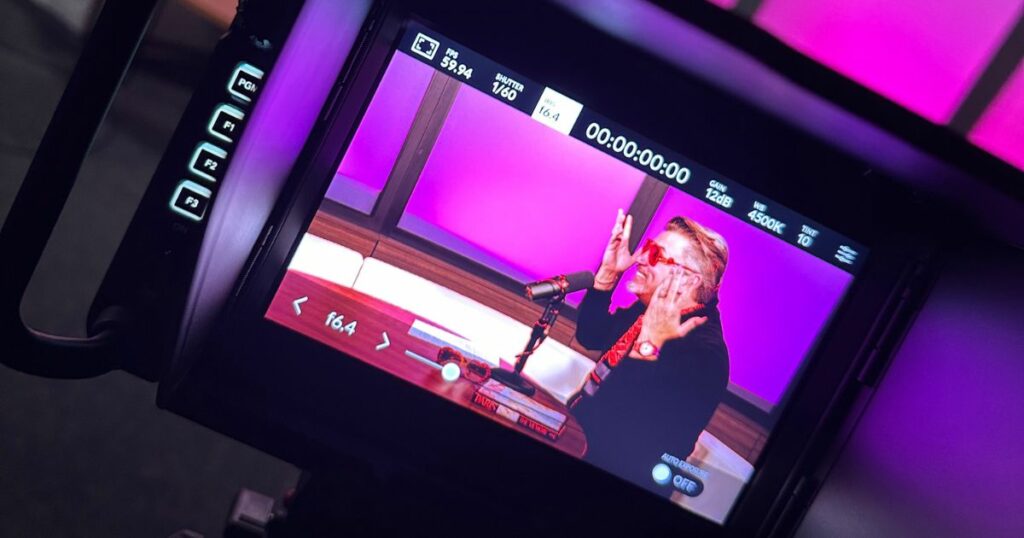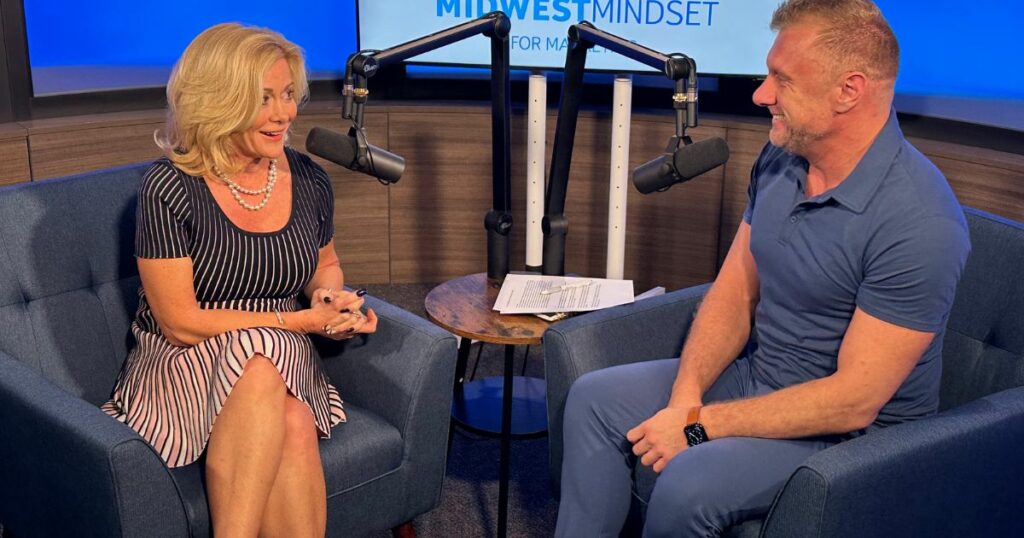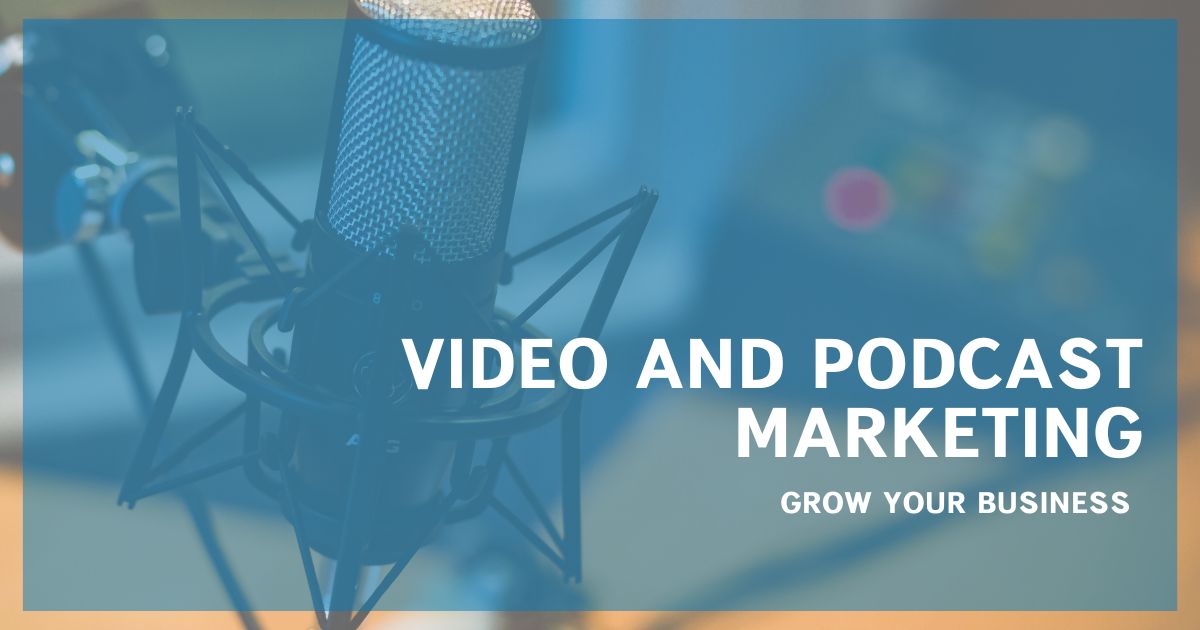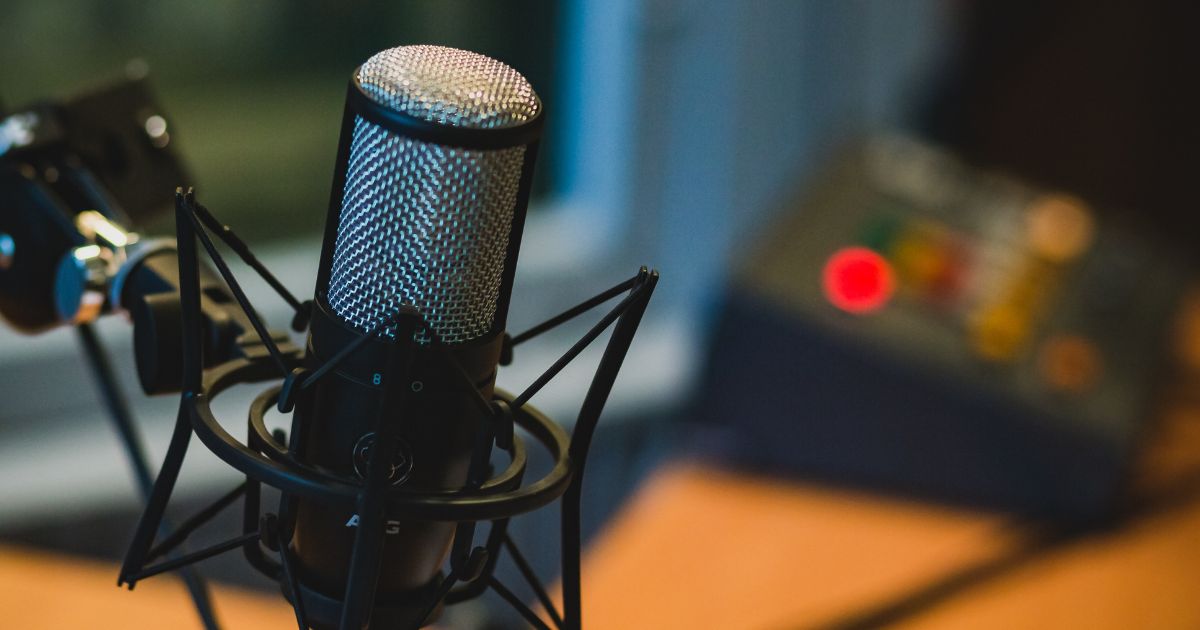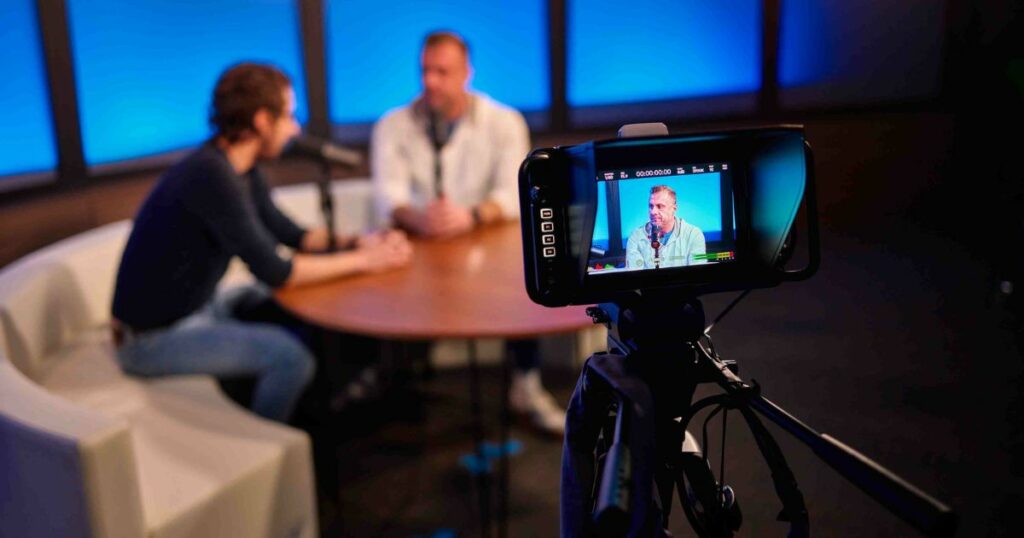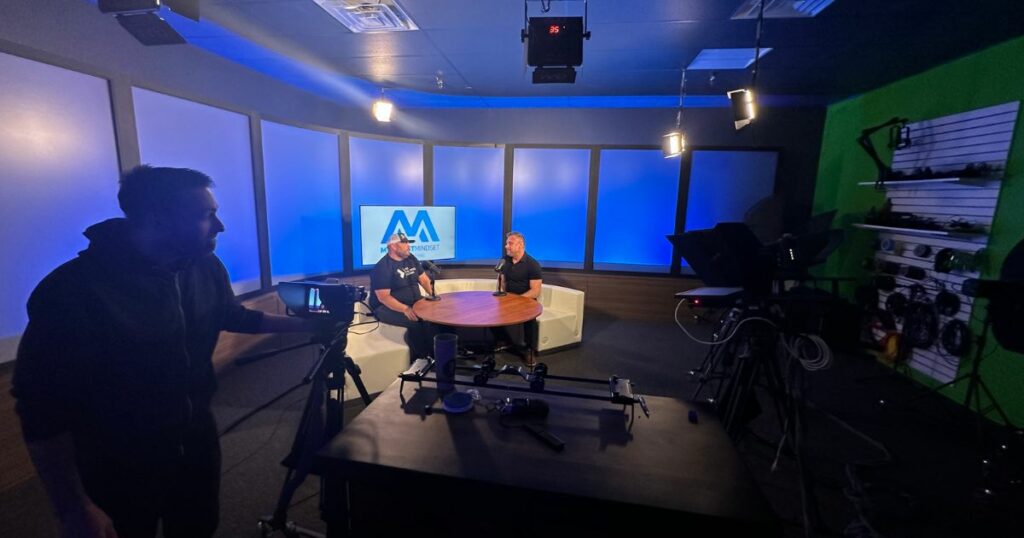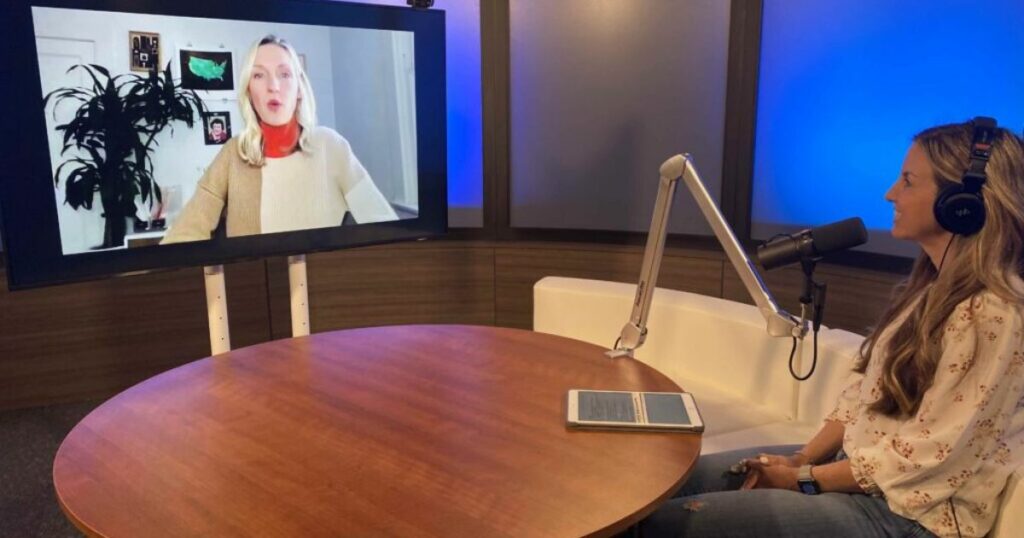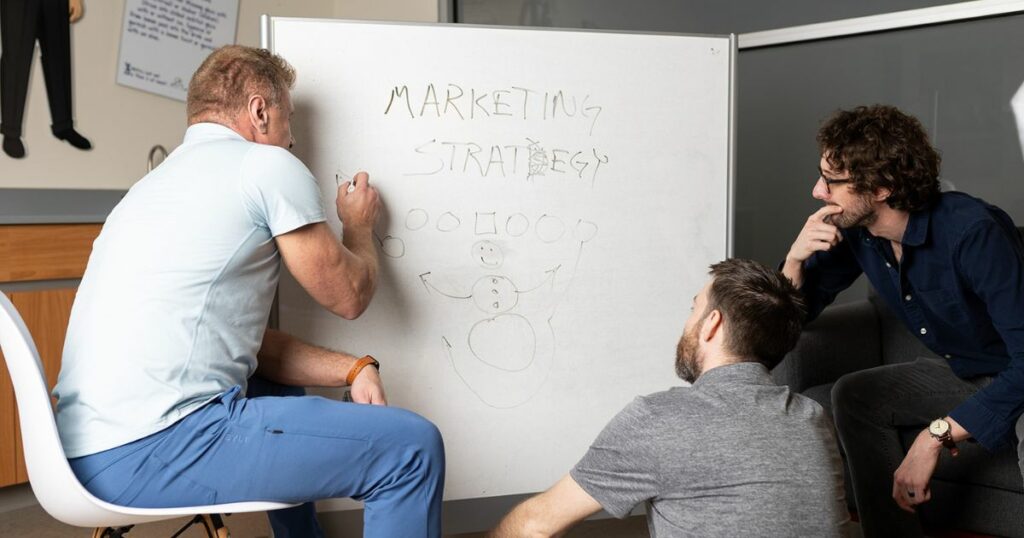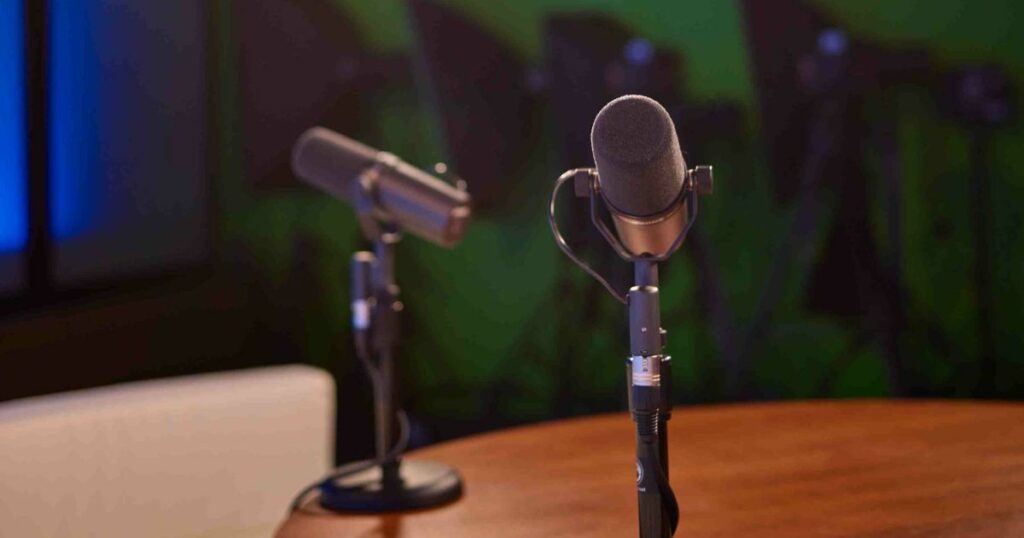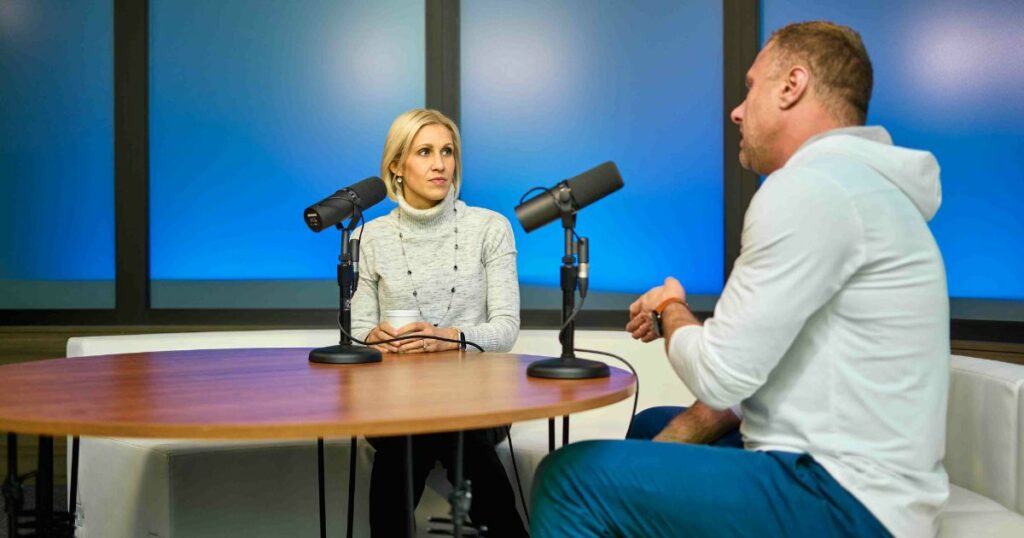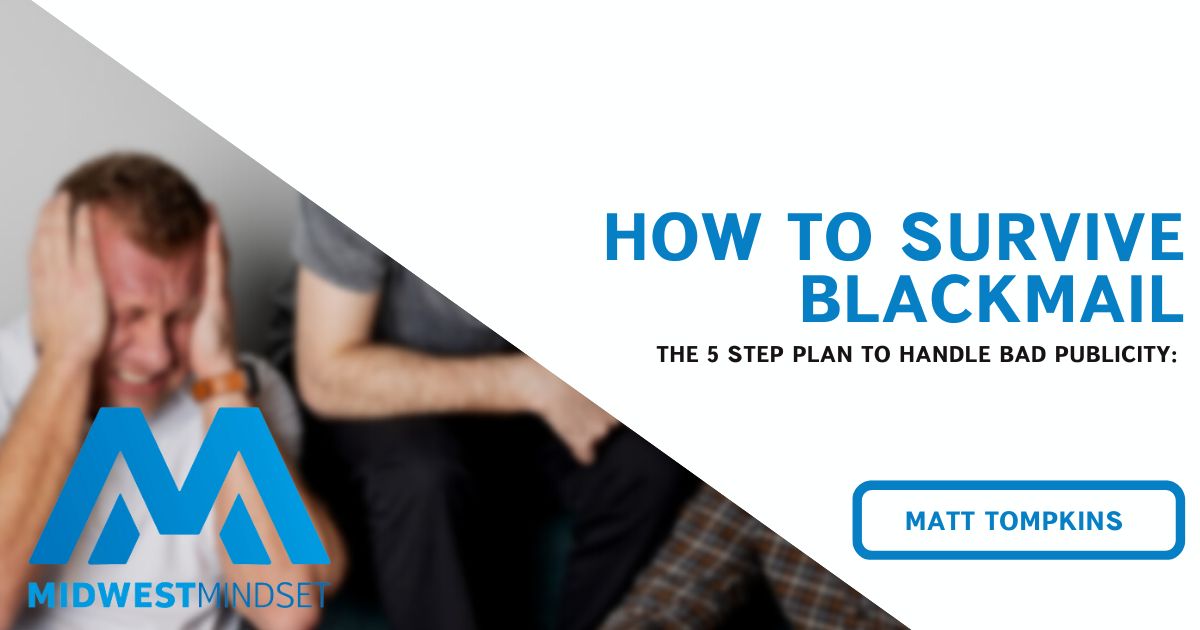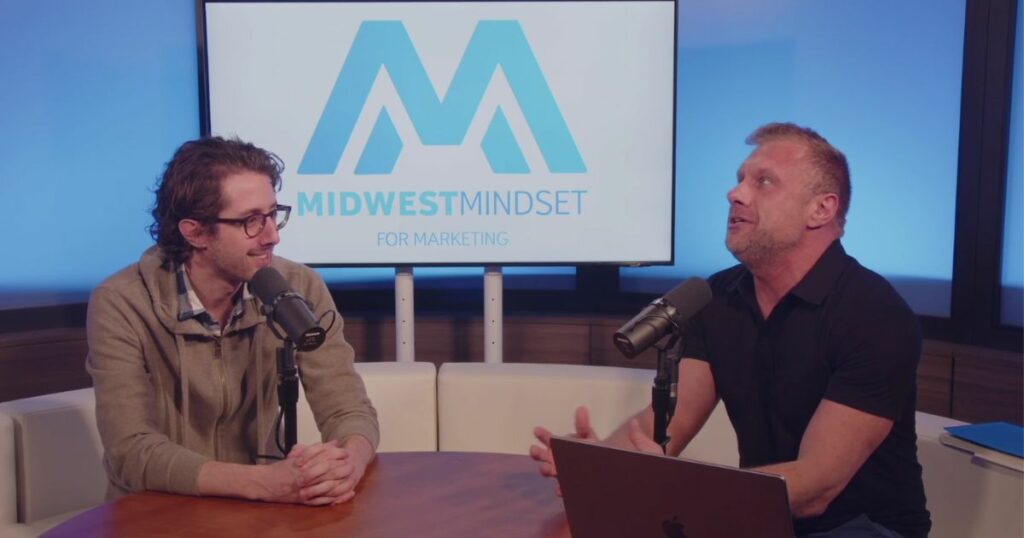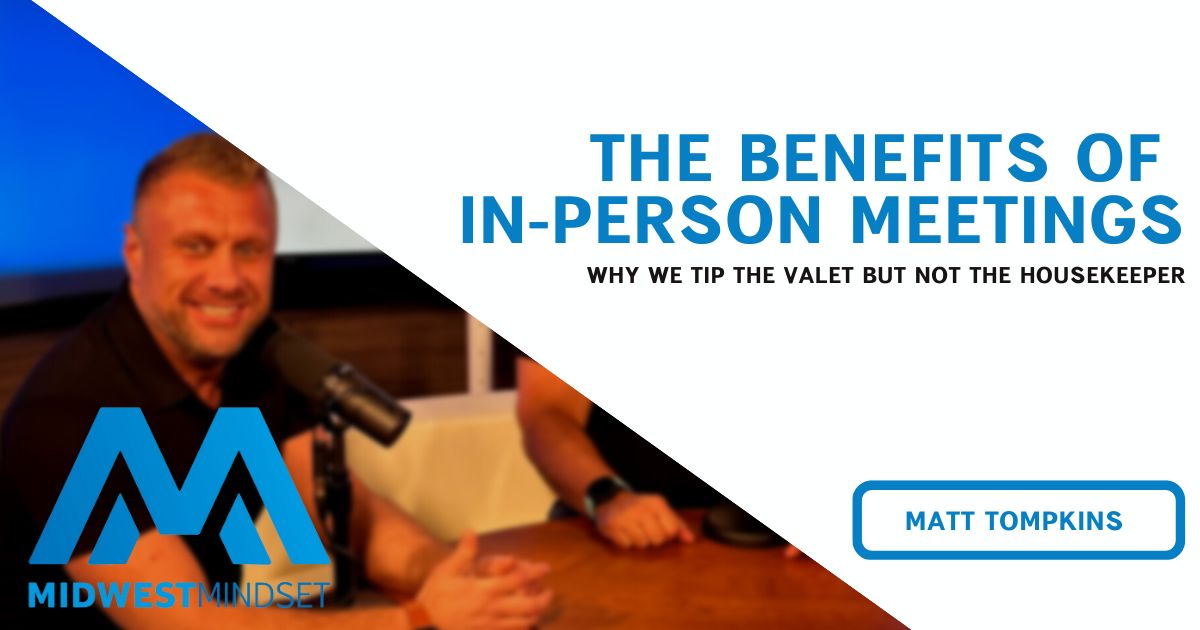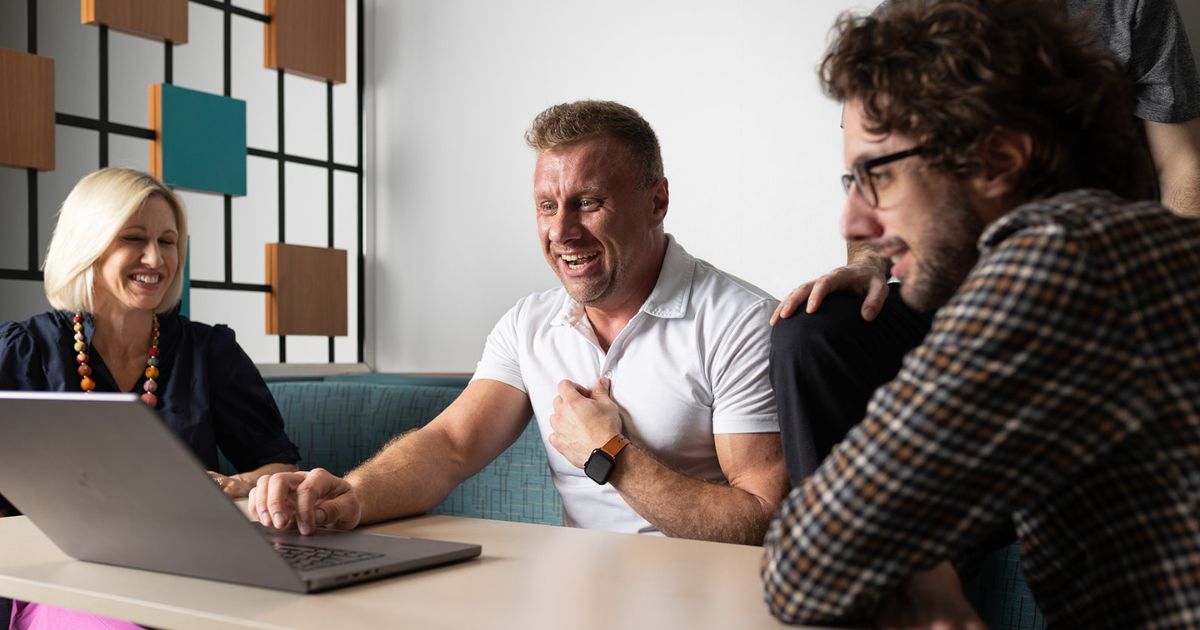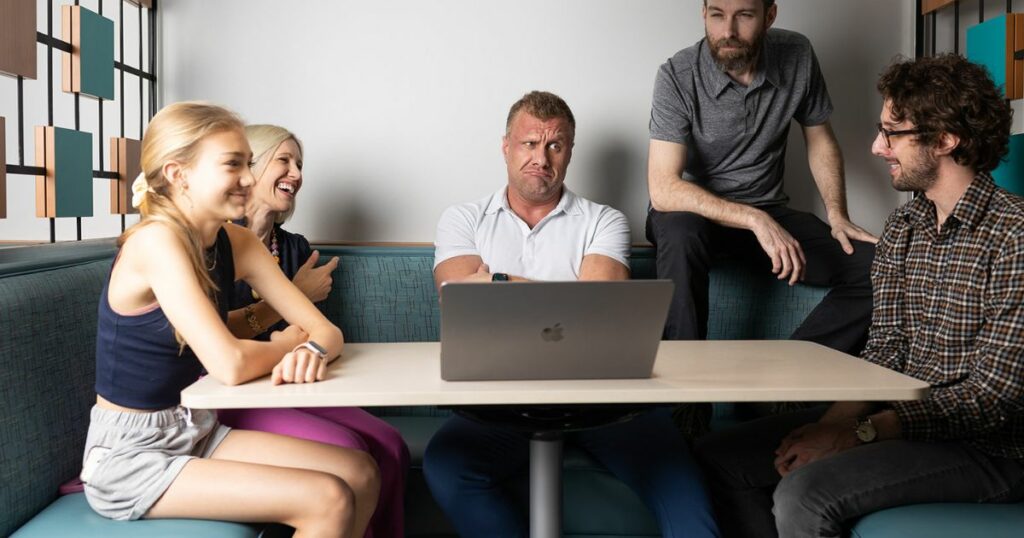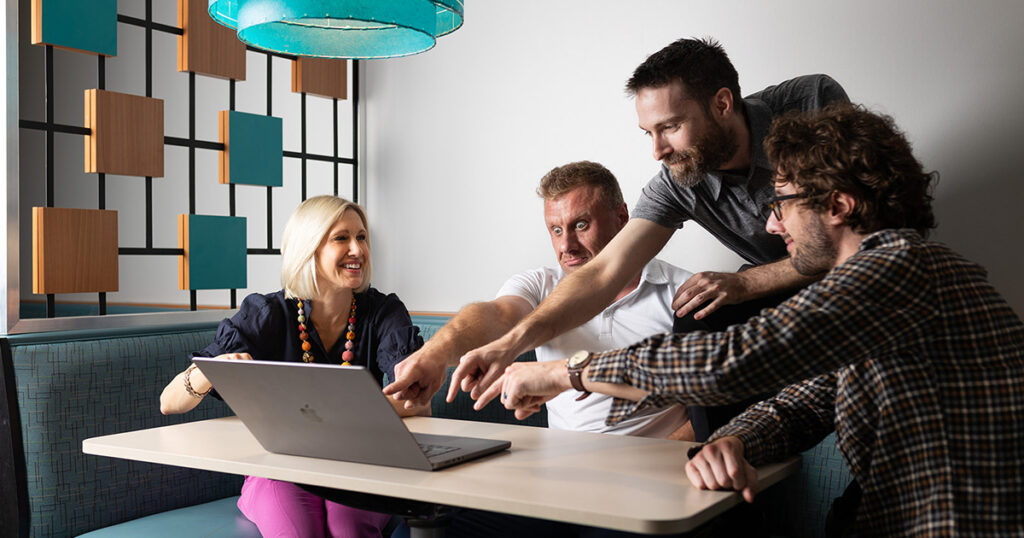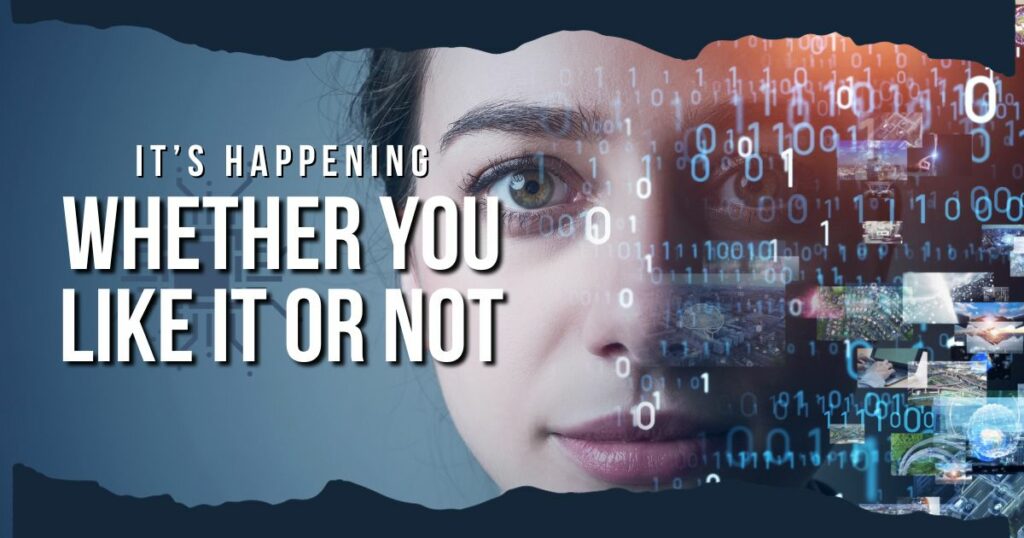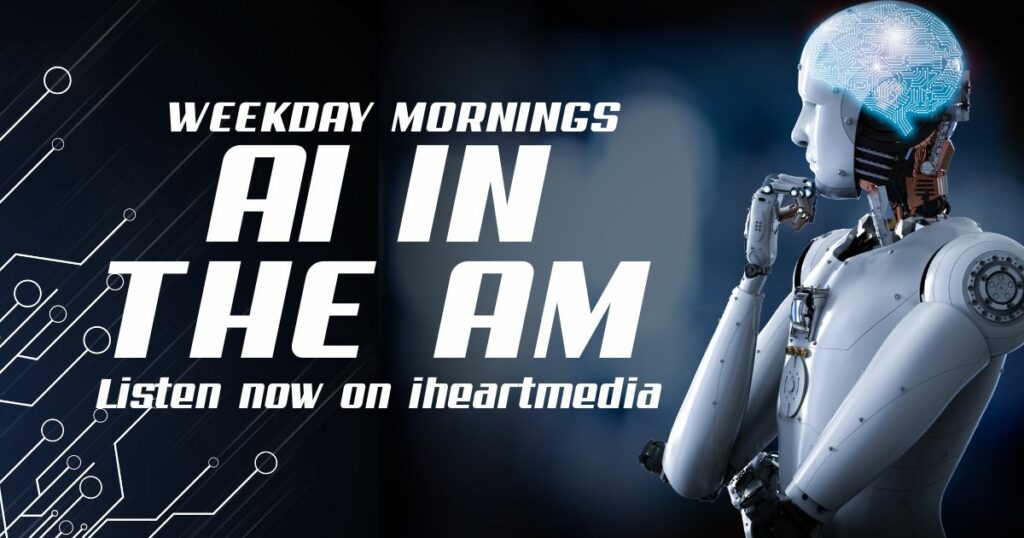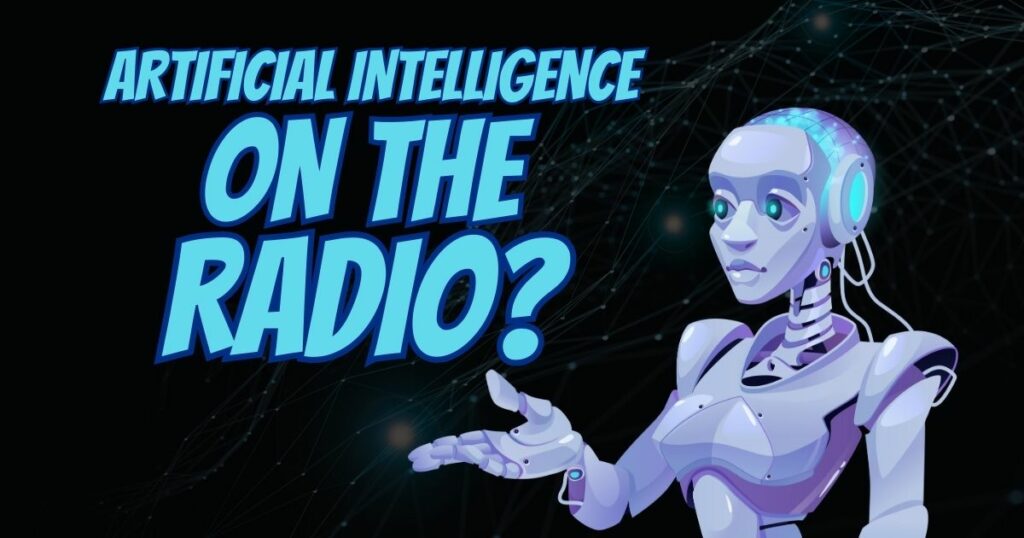How Public Failure Fuels Success
This is a written Transcription for the episode Midwest Mindset: How Public Failure Fuels Future Success.
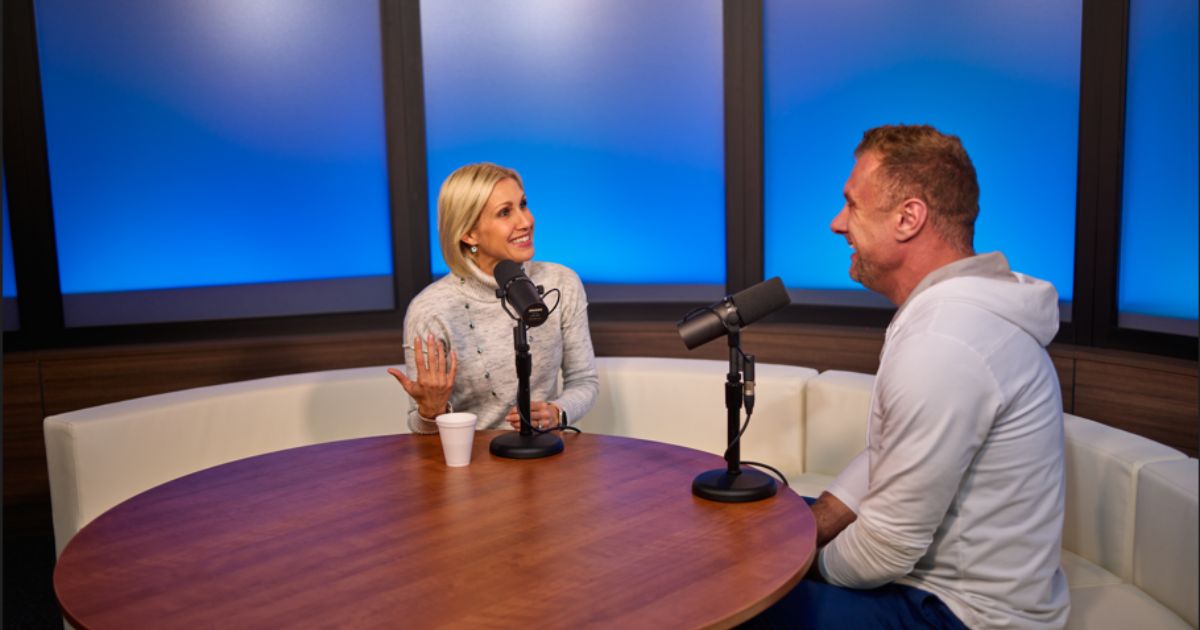
Full Written Transcript of The Episode
How Public Failure Fuels Future Success
MATT: Dealing with setbacks, challenges, even tragedies is something that I think most entrepreneurs and business owners will have to face someday.
And when it happens, we are usually not prepared. Failure is a part of the deal. It just comes with being an entrepreneur and a business owner.
We’re all going to have failures and setbacks, but the key is knowing how to keep calm, carry on and do the right thing for both you and your business.
Our guest today is Gwen Aspen, co-founder and CEO of Antiquum.
Gwen has had to deal with public failure on a gigantic stage when she ran for political office. And then an incredibly difficult situation where an employee tragically lost their life. And it all played out on the local news.
Today we’re going to learn how to handle public failure, loss and setbacks and how that can fuel your future success. Hello and welcome back to the Midwest Mindset, the podcast that makes marketing easy to understand and simple to do.
I’m Matt Tompkins of two Brothers Creative, where we believe every business deserves affordable and effective marketing. Public failure is something that not a lot of people associate with marketing, but it is.
You’re talking about PR, public relations. How are you going to handle public failure, setbacks, even tragedies and losses? As a business owner, this is something not a lot of people prep for. I would say most people don’t even do any sort of preparation or or even think about this. We don’t want to think about it. Right. We hope that this is never going to happen to me and it is going to happen to us now.
Gwen Aspen is going to share a couple stories with us here today that your setbacks, failures and losses may not be on such a big stage as what Gwen faced when she ran for political office and lost. And then when she tragically lost the life of one of her employees and it was splashed all over the local news, we.
GWENN: Did have a tragic loss at a property management company, and it was tragic because a beautiful, beautiful person who was a mother and a wife lost her life and kind of a freak accident. But I feel like the story is important to tell because as business owners, we are responsible for our employees safety.
And I’m lucky that I can move on from the tragic loss of this wonderful person. I mean, I do think about I mean, moving on is a weird term because there’s still I think about her every summer around the season. When the loss happened, I went through a tremendous amount of therapy over this.
But I was glad that this is really Jeremy’s credit and the team that we had at CPM. We had some really great safety, safety precautions in place. We had a quality control team, we had the processes and procedures.
And even so, even when you’re fully prepared for bad things to happen and you have plans in place to protect, the losses can still happen. So what happened was there was a terrible gas leak and she was the inspector went into an apartment and the whole city block blew up. Now, right after the explosion, we didn’t know if it was our fault or not. I mean, my husband and I had looked at each other and we said, if this is our fault, we deserve to lose everything.
And, you know, we’ll take full responsibility. So we opted to not get an attorney right away, even though everybody advised us to do so.
And we said the way that we are personally going to be able to move on from this is by honoring the life of Clara Bender and making sure everybody who’s listening knows what an amazing human she was. And we’re going to just take care of her family.
We’re going to make sure we do right by her and we’re going to make sure that we promote her legacy and everything else can wait and can be handled later. And I’m super grateful that that was our decision because it gives me peace.
MATT: But Gwen managed to get through this because she was prepared. She was prepared as a leader. The company was prepared and they learned a great deal from both of these these stories, both of these situations. And she turned this into fuel for her future success.
And that’s the goal here today. Public relations. Pr is a part of your marketing and you need to be able to anticipate what you’re going to do, be prepared for any type of setback or failure. I will tell you this firsthand. I think the true secret of having a successful business is being able to take the blows and just carry on forward.
You know, there are so many things we get hit with. I mean, even for me recently, you know, I’ve been hit with all these different blows you have. You’re going to have clients that, you know, for reasons you can’t control, they’re going to drop. You’re going to have that natural churn.
You’re going to get hit with tax bills. You’re going to get hit with expenses you didn’t expect. You’re going to get hit with major blows. And I think the real key to success in business is to be able to take those blows, compartmentalize them and carry on. You have to be able to keep your focus on the end goal.
MATT: And that’s the problem. I think most people, if they got hit with the blows that US business owners get hit with, they would just collapse.
They would just collapse. They’d be in a balled up in a corner crying because we get hit with a lot. That’s the truth. You know, we get hit with a lot of curveballs that we just have to take. We have to manage. We have to keep our focus on what is best for. For the business and for ourselves.
We have to keep that focus, no matter how many people tell us no, no matter how many things hit us, no matter how many blows, try to take us down. If you keep your focus on what you know you need to do. And you’re able to manage these blows. That, to me, is the true secret to success in business. You have to manage them, though. You can’t just set them aside and never deal with them again.
For Gwen Aspen, we talk about her run for office here first. Taking those failures that are going to happen, learning from those failures, and then using them to inform your future strategies for your business, or even, in her case, for creating a new business. Antiquum That is the key.
GWENN: I much prefer entrepreneurship because if I am wrong or I want to iterate and change tact or I learn new information, I want to be able to change my mind and go a different direction.
And that’s seen as flip flopping in politics. So so anyway, you know, failure is information that you either push too hard or went too far or you did something wrong. And taking accountability for that, like I made decisions in my campaign.
I’m not proud of. I think I did lose who I am as a person in that campaign. And what that did was inform my strategies for my new business, for the new business, to be totally values driven so that I don’t lose myself. And I always go back to my values when we make tough decisions so that I stay true to who I am and don’t get lost in the process. If I hadn’t learned those things through the failure, then the business that I have now as.
MATT: A business owner, we have to give ourselves grace. We have to give ourselves time to grieve. You know, we can’t just bottle it up and never deal with it. And you’re going to have things that are going to knock you off your pedestal. They’re going to be a major blow that are just tough to deal with.
And you have to give yourself time to process it, to deal with it, to grieve, if that’s the case. But the point is you have to give yourself time and you have to face these things head on.
We can’t just numb ourselves from having to deal with it. We’re all failures at something. I mean, there’s nobody who’s perfect, you know, It’s just it doesn’t it doesn’t Perfection is perfection isn’t even attractive. I think we think it is. We think we want that.
But in reality, that’s not what we really want. We want substance and we want experience and wisdom. And those are the qualities only come from failing, from trying and failing. And you can’t succeed if you’re not trying. And I would say you can’t succeed if you’re not failing. What I’ve heard you say so far is is a good lesson there. Like so when it happens, when you fail publicly, you’re humiliated. First thing is give yourself time to grieve.
MATT: You know, I mean, a lot of business coaches suggest that set a time limit, though. But just say, okay, two weeks, I can mope around, I can binge watch, you know, Ozark, four seasons, five seasons, whatever, on Netflix.
But after two weeks, I got to do something dealing with tragedies like Gwen Aspen and her company had to had to face head on is really something I don’t think I know I haven’t thought about as a business owner, as an entrepreneur, I’ve dealt with my own long list of failures and setbacks and blows, and I’ve taken them and I moved forward.
You know, you manage them as best you can. But a tragedy, a true tragedy is something I don’t think we ever imagine facing because we don’t want to face it. We don’t want it to become reality.
But when that becomes the situation that you’re in, you have to face it on. And I think the key is really knowing who you are and knowing the right thing to do for both the situation, your company and yourself. Core values are something that I believe should be the foundation of your business. Here are the things you need. If you are a business owner and you want to find success, here’s where you need to start.
MATT: Even if you’re already in business, you need to do these things. You need to know your mission. You need to know your vision, and you need to know your core values.
So when I was told by Gwen that I needed to establish my core values for my company, I, like many people, thought it was just some cliche, cheesy exercise, right? But I did it and I did the work. I put it in there, got my five core values.
And what I have found is that that is the foundation for everything you do, Every decision you make, you can turn to your core values and say, Hey, does this align with my core values? If you have an employee that’s not carrying their weight and you don’t know if they belong on your team,
well turn to your core values. Are they living up to your core values? If you have a client, if you have a customer who is difficult, you don’t know you maybe you don’t want to do business with them. Well, look at your core values. Do they align with your core values? And if they don’t, that needs to be cut. That needs to be removed. So core values are, I think, are essential to any business, no matter what stage you’re in, in business.
GWENN: I do want to just say this one thing, like when you’re starting a new business, when we start our property management company, all the gurus would be like,
Start with your mission, vision and values. I’m like, I don’t know. I just manage properties and don’t screw people over. Like, is that a mission vision value?
MATT: For me it is. You know, you know me. I’m like, the potter was the guy in It’s a Wonderful Life. It’s like Pottersville. That’s me. That’s an old reference, but no reference.
GWENN: But it seemed like cheesy and like, we’re just doing this simple thing, like, do I really need to have this values moment with your team? But I totally with some, you know, some space from that, that moment when we were starting our business, I totally see the value and really going through that exercise with your yourself or your leadership team, because whenever there’s a setback, you know the next right thing to do. It’s super clear and you never look back and you’ll have peace no matter what tragedy you may face or what setback you may have.
MATT: Leadership is something that takes a lot of work and responsibility. I would say accountability is another aspect of leadership that is often pushed to the side. You know, as leaders, it’s it’s important that we are held accountable, just like our employees. But a lot of us leaders don’t want to be held accountable. You know, this is my company. I’m going to do things my way and I’m not going to be criticized. Everything stems from the top, every decision, every failure. If your employee screws something up, well, did you give them the proper checklist?
Did you give them a proper procedure? Did you give them the full description in details and expectations of what they were supposed to do? Having metrics, having measurables, having procedures, processes and procedures in place. That is how you determine this. And it’s also how you keep yourself accountable as a leader, because people are looking for these qualities in their leaders. And every company, every company’s success hinges on leadership.
GWENN: And as a leader, I mean, if you’re really clear on who you are, what you stand for, I mean, that that’s the leadership quality people are looking for. And we frankly, we need more leaders who are really clear on what they stand for and what they who they are and what they can contribute to the world.
And that’s the best way if everybody could do that. I mean, and you’re starting a business and you really that’s where you start with true leadership and everything will kind of fall into place from there.
MATT: You can’t move on and you can’t grieve. You can’t properly process if you don’t own your own failures. Owning your failures is Gwen talks about here is essential because that’s how you learn from your failures. I don’t steer away from failures. I don’t steer away from setbacks.
You’re going to try things and they’re not going to work. You can call it a failure. You can give it a better name if you want. Failure seems harsh, but you have to own your failure.
I love this analogy here. When you go to the gym and you work out, you’re literally pushing your muscles to fail every single time you’re pushing your muscles till they literally tear apart so that they can rebuild and be stronger. So if you’re not tearing your business muscles apart, if you’re not pushing yourself to failure, learning from that and growing, becoming stronger from it, you’re not going to move on.
That’s the only way to move on.
GWENN: Name your failure. Was it weakness? Were you a weak person? Like once you name it, you’re like, okay, I can accept that I was weak or I lost my way.
Okay, I lost my way once you just accept that the thing that seems like so self-loathing or the most embarrassing or I lost courage. You know, I was a coward. Just. Just say it to yourself, Own it, and then you can move on from it.
MATT: If you’re not uncomfortable, then you’re not doing it right. You need to feel uncomfortable with things you do with your company. You know, getting on social media, doing videos.
A lot of business owners get uncomfortable. They don’t want to have their face out there. They feel this is going to be embarrassing. I’m going to look like a schmuck. If you feel uncomfortable, you’re doing something right. You need to get comfortable with feeling uncomfortable.
GWENN: All growth is uncomfortable. So a lot of people say that, um, that if I’m feeling uncomfortable, I shouldn’t move forward. But you should move forward anyway. Like, grow anyway.
Do that hard thing anyway. And if you fail, you will survive. You can pick yourself up. Don’t be afraid of failure where you don’t do the thing that will make your life the best life ever.
MATT: Thank you so much to Gwen Aspen of Antiquum for joining us here today on the podcast and sharing those deeply personal stories. I know that’s not easy to do, but I appreciate that greatly because I learned a lot from those stories. I hope you took away a lot as well.
Gwen is I think she is the epitome of the entrepreneur that we aspire to be. So appreciate her coming on the show here today and thank you so much for listening to this episode of Midwest Mindset. If you’re struggling with your marketing and you need some direction, we’re going to help you out.
Right now. In the show notes, you can click on the link and download our free six Step marketing plan. It’s a six step marketing plan to get your marketing realigned, help you get things in order so that you can grow your business. The link is in the show notes. The free six-step marketing plan is yours.
